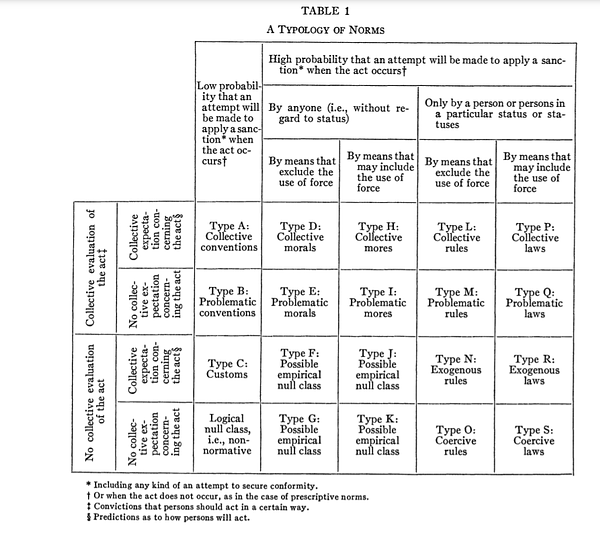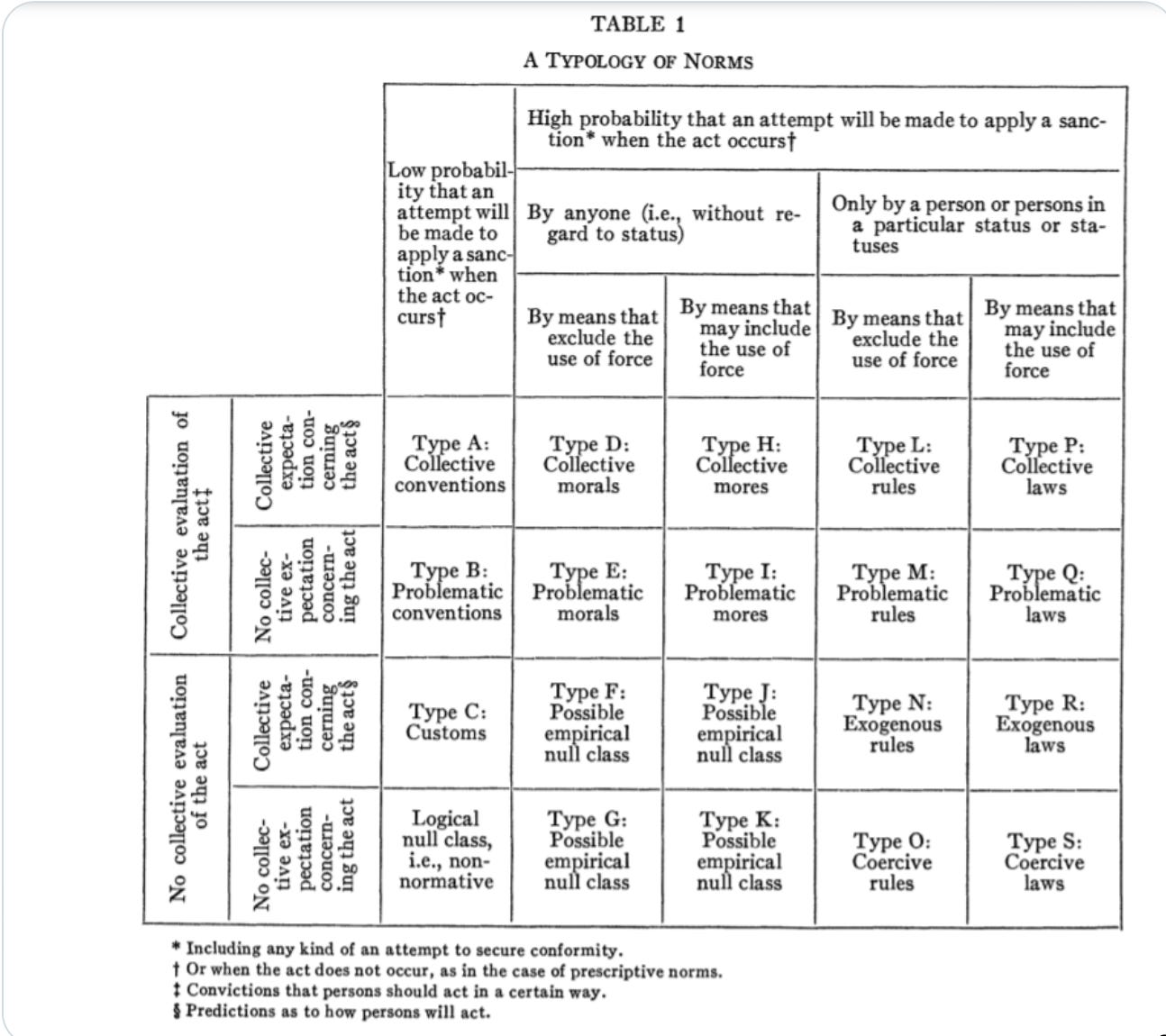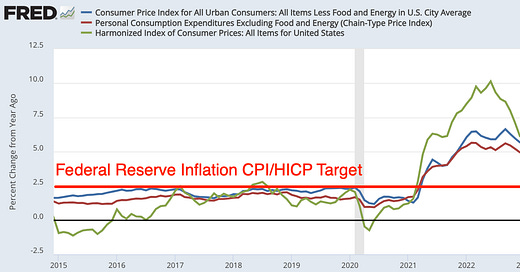
First: Against Meritocracy:
If you have a test or another activity to select who is “the best”, you had better make damned sure that the test or activity accurately measures or reflects what you really want done. In the limit, you optimize for test-takers—and people who have devoted all of their time to become expert test-takers have spent none of their time learning to do anything else. They are thus likely to be far from “the best” at what will be their real job.
How can you tell if you are falling into this trap? Divide your population up into groups. See how well the best test-takers are spread out among those groups, If there is no reason to think that those who will actually be best at the real job are anything other than uniformly distributed among the groups you have chosen, and yet if it turns out that those who score highest on the test are strongly concentrated—then it is highly likely that you are missing huge numbers of potential candidates, and wasting a huge amount of talent.
Rajiv Sethi ran across a very interesting paper on Finland that is on point here:
Rajiv Sethi: Notes on a Remarkable Finding from Finland: ‘Ursina Schaede and Ville Mankki…. A change in the manner in which… teachers were selected…. A first stage based largely on scores on a high school matriculation exam, followed by a second stage…. For a number of years, acceptance into the second stage was based on a quota, ensuring that at least 40 percent… were male…. The first post-quota cohort… graduated in 1994…. Students differentially exposed to the quota-constrained cohorts of teachers ended up with better educational attainment and labor force participation…. “Male quota teachers contributing positive qualities to the school environment that are not sufficiently captured by the selection criterion in absence of the quota.”… Important characteristics (unmeasured by scores) were not identical across male and female applicant pools. The quota was picking up individuals with these characteristics by proxy…
LINK:
One Video:
Take Any Square Root by Hand <https://www.youtube.com/watch?v=HBdVVFqTrUU>:
One Picture:
Adam Gurri: ’Like “norms,” which is very related, it’s used to mean a lot of different things…. Decid[e] which characteristics you care about and build… your taxonomy from there. This… was… best for norms:<https://t.co/myQw5T4xw> <https://t.co/G9ufEVRe00>


Suresh Naidu: ’This is actually a pretty good typology of “institutions”… norms (conventions vs customs vs mores) and laws and modes of enforcement… collective expectations… Nash equilibrium… collective evaluations… Pareto optimum)…


Very Briefly Noted:
Donna Ferguson: Bambi: Cute, Lovable, Vulnerable… Or a Dark Parable of Antisemitic Terror?: ‘A new translation… reasserts its original message… <https://www.theguardian.com/news/2021/dec/25/bambi-cute-lovable-vulnerable-or-a-dark-parable-of-antisemitic-terror>Wikipedia: Kingdom of the Lombards <https://en.wikipedia.org/wiki/Kingdom_of_the_Lombards>
Ian Millhiser: The Supreme Court showdown over Biden’s Covid–19 vaccine policies is happening now: ’Biden’s vaccination policies could save thousands…. The Supreme Court could toss them… anyway… <https://www.vox.com/2021/12/22/22848155/supreme-court-vaccine-mandate-osha-cms-covid-joe-biden>
Dennis C. Rasmussen: Fears of a Setting Sun <https://press.princeton.edu/books/hardcover/9780691210230/fears-of-a-setting-sun>
Matt: ’The cons keep making the argument that California is on the brink of collapse when it’s actual problem is that the demand to live in California far outstrips the supply of homes in the state…


Scary Lawyerguy: ’If President Hillary Clinton was on tape asking the GA Secretary of State to “find” 12,000 votes so she could be declared the winner of his state, the DOJ would have already indicted her (and rightly so). Trump actually DID THIS and is under no threat…

John Robb: ’Doggerland was completely flooded by rising sea levels around 6500–6200 BCE <https://t.co/tNqcJbopGt>…


Nilay Patel: ’Every “interactive TV” experiment… fun filler content hidden away in dusty unused corners of apps <https://t.co/XQ7k6Z5f6s>…


Adam Tooze: Books We Read in International & Global History<
Paragraphs:
Martin Sandbu: The Case for the Affordability of Universal Basic Income: ‘I would implement basic income… as a negative income tax…. One-third… of the amount… households have to spend after taxes and transfers… £7,150 a year, or almost £600 a month… LINK: <https://www.ft.com/content/3788b99e-7b8c-4641-8250-6f6823f1a7f6>
Anne Laurie: ANTHRAX!!!1!!: ‘David Gilbert, at Vice: "People Got Sick at a Conspiracy Conference. They’re Sure It’s Anthrax…. Claim… first made by Joe Oltmann on his Conservative Daily podcast earlier this week… coughing and sneezing on camera…. The conference, run by Tulsa businessman Clay Clark, was headlined by figures like disgraced former national security adviser Michael Flynn, former Trump adviser Roger Stone, and MyPillow CEO Mike Lindell. Eric Trump, the son of former President Donald Trump, also spoke at the event. “There’s a 99.9% chance it’s anthrax,” Oltmann said…. No one had tested positive for anthrax poisoning…. None of the other 3,500 attendees… reported suffering…f anthrax…
LINK: <https://www.balloon-juice.com/2021/12/22/wednesday-evening-open-thread-anthrax1/>
Luke Muehlhauser: How Big a Deal Was the Industrial Revolution?: ‘Gains and losses in (these measures of) human well-being during the pre-industrial era are miniscule compared to the gains made during the post-industrial era, and there is a sharp upward trajectory change for all these measures shortly after 1800. This provides a qualitative, as well as loosely quantitative picture of the magnitude of change I have in mind when I speak of “transformative” change…. To many readers, it will not be a surprise that such a transformative change occurred shortly after the industrial revolution. What is perhaps more surprising is to consider how many major historical events seem to have not produced anything close to such a transformative change…. No other transitions in recorded history are remotely comparable…
LINK: <http://lukemuehlhauser.com/industrial-revolution/>
PAID SUBSCRIBER Content Below:
I am still noodling around, wondering what to say in my first Economic History lecture to the graduate students later this month. One possibility:
Post-Neolithic Revolution Watershed-Boundary Crossings in Human Economic History
I, at least, see five important watershed-boundary crossings in the economic history of the past 8000 years.
(1) The first watershed-boundary crossing comes immediately after the Neolithic Revolution, with the coming of “civilization” about the year -5000. Before then, humans were indeed anthology intelligences—what one person knew, as soon pretty much everyone in the band knew, because of our incredible and sometimes regrettable compulsion to talk and gossip even when we know it will not be a to our long-run advantage. But they were short-run short-distance anthology intelligences. knowledge is limited and evanescent: what one band new had a hard time diffusing over great distances, and what was not immediately useful could and did decay and be lost over the centuries. With civilization and more so with writing, we became a global-scale time-binding singular anthology intelligence. And that mattered greatly.
From year -5000 to year -1, we could see more people chattering and communicating leading to faster advances in ideas. Faster advances in useful ideas supported faster population growth through Malthusian forces. Faster population growth produced a greater human population base. That in turn produced more chattering and communicating and even faster advances in ideas. We thus think we have a human population with a proportional growth rate that more than doubles from 0.03%/year to 0.06%/year, comparing the -3000 to -1000 Bronze Age with the -1000 to 1 Iron Age, what some call the “Axial Age” of humanity.
(2) But then there comes a second watershed-boundary crossing. It comes not after 1 but rather after 170: the Late-Antiquity Pause. We do not see another doubling of the rate of ideas and of population growth. Instead, after 170… things kinda fall apart. Dark Ages. Imperial decline and fall. Barbarian invasions. Emperors desperate to protect their realms making unwise deals with barbarian warlords with names like Alaric the Visigoth and An Lushan the Sogdian. Rather than a breakthrough out of Malthusian near-stagnation, the years from 1 to 800 see a decline in the ideas growth rate back to 0.016% per year, Apparently slower than anything seen since the -5000 coming of “civilization”.
But after 800 things recover. We think we see, worldwide, the same proportional ideas growth rate from 800-1500 as we saw from -1000 to 1: 0.06%/year. And technology is at a higher level: it would have taken, on average, more than two workers in -1000 to do what one worker could do in 800. (Living standards on average did not rise, however: with 4.5 times as many people in 800 as had been in -1000, farm sizes were smaller.) On the other hand, even with 220 million people around in 800, their ability to think up new useful ideas did not exceed the ability of the 50 million people around in -1000.
Then, in 1500 and after, comes a triple breakthrough:
(3) The third watershed-boundary crossing comes in 1500 with the arrival of the Imperial-Commercial Age. 1500-1770 sees a 2.5-fold amplification ideas growth over the previous Agrarian-Age norm. Human living standards do not rise by very much—Malthusian pressures are still strong, and so the little rise in typical living standards for those not at the sharp edge of imperial-commercial globalization brings forth a previously unprecedented 50% rise in human population over the period. But 1500-1770 does see as much advance in the deployment of useful ideas in the human economy as over all the technological progress of the preceding 500 to 1500 millennium.
(4) Then comes the fourth British Industrial Revolution watershed-boundary crossing around 1770, and the British Industrial Revolution Age 1770-1870. The already unprecedented Imperial-Commercial Age rate of global technological progress triples. From 1770-1870, useful and productive technologies for manipulating nature and organizing humans invented, discovered, developed, deployed, and diffused across the human world economy advance so fast that a typical decade sees change that you would have had to wait a typical century to see over the epoch -1000 to 1500. The Malthusian Devil is still in control: the world population nearly doubled from 1770 to 1870, with smaller farm sizes almost but not quite offsetting the potential benefits better technology offered for human living standards.(5
(5) And then the fifth ands—so far—final watershed-boundary crossing around 1870, bringing us into our Modern Economic Growth Age. A further more-than-quadrupling of the pace of ideas growth. Now one typical year sees the progress that took 50 years on average over -1000 to 1500. In a generation human deployed and diffused technological prowess doubles. And then in the next generation it doubles again. Such a pace of creative destruction, overturning the foundational technological and economic underpinnings of society, has never been seen before. It characterizes our age.
Then there is a natural next question: What happens next?
We think that world population is likely to top out at between 9 and 10 billion. Suppose that thereafter we attain zero population growth. If we suppose further that the pace of technological progress continues at the roughly 2%/year seen since 1870, that gives us a ca.-2100 world in which the typical standard of living is some $70,000 of our dollars per year—the level of, say, Greater San Francisco today. Manifestly, that is not enough wealth to build a true utopia. But it is enough wealth to make a society wealthy and comfortable indeed. (Although we do not know how much of that wealth will have to be committed to global warming adaptation and remediation.)
Another century of similar growth at a stable world population would give us a ca.-2200 world in which the average person lives, well, better than I do: an average could with $1,000,000 a year to devote to their projects and goals. I can see, barely, how a typical person could use such wealth.
But project forward another 300 years—if technological progress has not come to a stop there is no more fruit, even high-hanging fruit, to be picked—and we see a ca.-2500 world in which the typical living standard is not far from $200,000,000 a year, and in which every day the typical person has $500,000 of resources to spend making themself comfortable and advancing whatever their current projects might happen to be.
I really have a hard time contemplating what such a world would look like…















The wealth is all going to have to go to fighting the baked-in consequences of environmental damage (global warming, ocean acidification), so a large part of that $200-million-per-year living standard will be spent on environmental maintenance and remediation.
Consider how much each person currently pays in taxes (and government borrowing) towards water systems and sewer systems. And it's not enough. Now multiply that by factors of thousands or millions.
I mean... yes, this is going to be utopian if we can get there. But your fundamental error is to think of the goods as private goods. Every person is going to get far, far more PUBLIC goods. Instead of imagining $200 million per year for each person, imagine 2 quintillion spent per year on management of ecosystems. Doesn't that sound a lot easier to imagine?
I guess that the general validity of the Finnish experiment depends on the invalidity of "g"--the generalized aptitude that some people say is measured by IQ tests. Damned if I know.